
Music practitioners and connoisseurs of Jamaican popular musichave often categorised the island’s music into four main areas: ska, rocksteady, reggae, and dancehall. According to them, ska was popular from 1962 to about the middle of 1966; rocksteady from late 1966 to 1968; reggae from 1969 to 1983; and dancehall from 1983 to the present time.
There were other forms of Jamaican music like version, dub, and roots reggae, which, although given due recognition, were never numbered among the main genres, perhaps because they were merely spinoffs from them. But, in all fairness, no history of Jamaican popular music could ever be written without the inclusion of mento, or what some refer to as Jamaican calypso.
It holds pride of place, above all others, as being Jamaica’s most indigenous music form, having evolved from the slave plantation system of the island. All other forms of Jamaican music were never home-grown like mento, but depended on the American rhythm and blues and boogie to form the base for their development.
Mento, the forerunner of the Jamaican blues, had this lively, bouncy rhythm that forced dance fans on to a dance floor during its heyday of the late 1940s and early 1950s. Indeed, it was Jamaica’s first commercially recorded music as well and ought to be numbered among Jamaica’s popular music, or the legitimate Jamaican music forms, whenever categorisation is attempted.
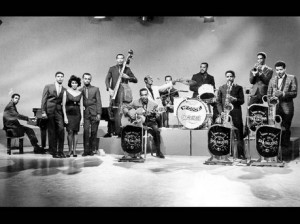
NO OFFICIAL TITLE
Sometime in mid- to late 1966, there also appeared in Jamaica’s popular music some slowed-down ska-sounding recordings, to which a category has never been officially given, and to which due recognition has never been afforded. It was a type of music that I would choose to label ‘transitional ska’, and true to its name, it acted as a transition between ska and rocksteady, manifesting itself in the gradual disappearance of the hard-driven horns that had dominated ska in favour of more emphasis being placed on the basslines, and in general, the beat of the music.
These recordings had elements of ska and elements of rocksteady but could never be truly labelled as belonging to either of the genres. It was a time when almost everything was happening in Jamaica: Emperor Haile Selassie of Ethiopia made a state visit to the island on April 21; Bob Marley, who married Rita Anderson in February, was on a visit to his mother in Delaware, US, and missed the Emperor’s visit; the Maytals won the inaugural Festival Song Competition with a song called Bam Bam; and the Wailers’ reunification by year end became one of the main catalysts for the emergence of Bob Marley as an international music megastar. Sublime as it was, the sweet music of the day, epitomised by this ‘transitional ska’, seemed to complement all these important happenings
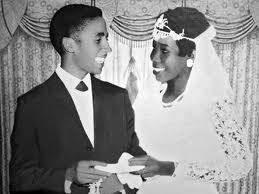
GREAT RECORDINGS
Transitional ska gave us some of Jamaica’s best recorded popular music. Included in the lot were Dancing Mood, Ungrateful Baby, andRiding for a Fall by Delroy Wilson. With this type of beat, which was neither ska nor rocksteady, Ken Boothe gave us The Train is Coming, I Don’t Want to See You Cry, and Don’t Cry Little Girl, while the Gaylads had No Good Girl, Stop Making Love Beside Me, and You’ll Never Leave Him.
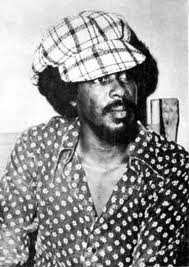
All had the Studio 1 trademark, which again underlines the innovative qualities of the Studio 1 musicians. But perhaps the most popular recording of this type – and the one that was on the lips of almost every musically inclined Jamaican at the time – was the anthemic I’ve Got to Go Back Home. Perhaps the first call for repatriation in popular music, Bob Andy was forthright as he sang:
“I’ve got to go back home
This couldn’t be my home,
It must be somewhere else
or I would kill myself.
‘Cause I can’t get no clothes to wear
Can’t get no food to eat,
Can’t get a job to get bread.
That’s why I’ve got to go back home.”
PART OF TRANSITION
In an interview with the late great Alton Ellis, he claimed that he was also part of the transition when he recorded for producer Duke Reid his oversized hit Girl I’ve Got a Date. “The first switch when the music was changing was Girl I’ve Got a Date. If you listen carefully to it, it’s between the ska and the rocksteady,” he said.
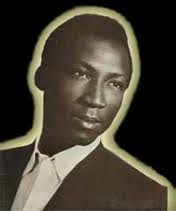
The Wailers, with Bunny Wailer, Peter Tosh, and Constantine Walker, deputising for Bob Marley who was overseas, recorded the very affable cut called What Am I To Do? for Studio 1, while Peter Tosh proved the type of mettle he was made of with the very uncompromising description of himself in I’m the Toughest, which became his first solo hit. Earlier, The Wailers, with Bob Marley, Peter Tosh, and Bunny Wailer, had recorded the pro-rude boy song Let Him Go, in which the lines ran:
“Rudie gone a jail, but rudie get bail.
You frame him, you say things he didn’t do.
You rebuke him, you scorn him, you make him feel blue.
I beg you let him go.”
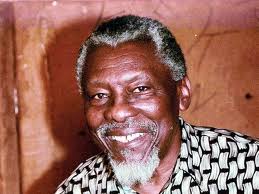
SPONTANEOUS CHANGE
Recording for Studio 1, The Ethiopians successfully used the beat to create one of dancehall’s most popular piece, titled I’m Gonna Take Over, while the Heptones’ exclusive cut, Nobody Knows, was perhaps the sweetest-sounding recording out of the Studio 1 stables. Elsewhere, the Tartans’ People Gonna Dance All Night stood the test of time.
A check with several old musicians who were close to the action revealed that on the whole, the change was spontaneous.
“We we just playing around and experimenting, but on the whole, we wanted to slow things down a bit,” was one comment.
Dub and versions in particular, which first appeared in Jamaican music in the late 1960s, were merely spinoffs of the headline genres of rocksteady and reggae, nonetheless, they played significant roles in popularising the deejay or rappers phenomenon in popular music in later years. Jive-talkers and toasters first found the spaces provided by the exclusion of the vocal track an ideal vehicle for expression. Pioneers like Count Matchukie, King Stitt, U-Roy, and Dennis Alcapone led the way.
broyal_2008@yahoo.com

You must log in to post a comment.